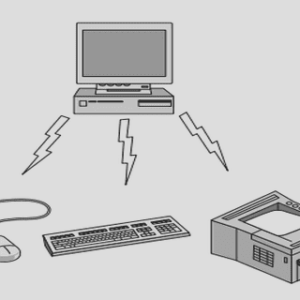(Downloads - 0)
For more info about our services contact : help@bestpfe.com
Table of contents
INTRODUCTION
CHAPTER 1 CONCEPTUAL FRAMEWORK & METHODOLOGY
1.1 Theoretical background
1.1.1 Engineering design process
1.1.2 Idea generation
1.1.3 Bisociation
1.1.4 Innovation contests
1.1.5 Data mining tools and techniques
1.1.6 Knowledge discovery from databases
1.1.7 Use of data mining for idea generation
1.2 Methodology
1.2.1 Design Science Research framework
1.2.2 Evaluation
1.2.3 Expected results
1.2.4 Stages
1.3 Exploratory studies
1.3.1 Outdoor lighting company
1.3.2 Summer school on innovation and technological design 2015
1.4 Design cycle evaluation
CHAPTER 2 BIG DATA ANALYTICS AS INPUT FOR PROBLEM DEFINITION AND IDEA GENERATION IN TECHNOLOGICAL DESIGN
Abstract
2.1 Introduction
2.2 Idea generation sessions
2.3 Big data analytics
2.3.1 Problem definition / need identification
2.3.2 Idea generation
2.4 Application in a higher education setting
2.4.1 Evaluation criteria
2.4.2 Problem definition / need identification
2.4.3 Information gathering
2.4.4 Idea generation
2.5 Discussion and conclusion
2.6 Design cycle evaluation
CHAPTER 3 IMPROVING CONCEPT DEVELOPMENT WITH DATA EXPLORATION IN THE CONTEXT OF AN INNOVATION AND TECHNOLOGICAL DESIGN COURSE
Abstract
3.1 Introduction
3.2 Background
3.2.1 Data mining for new concept development
3.2.2 Patent mining for creativity
3.3 Hypothesis
3.3.1 Evaluation of results
3.4 Case study
3.4.1 ETS Summer School
3.4.2 The activity journal
3.4.3 Team composition
3.5 Big data for creativity
3.6 Results
3.7 Discussion and conclusion
3.8 Future work
3.9 Design cycle evaluation
CHAPTER 4 PROMPTING INVENTIVE SOLUTION DESIGN WITH KEYWORD CUES FROM PATENT MINING IN AN INNOVATION COMPETITION
Abstract
4.1 Introduction
4.2 Background
4.3 Hypothesis
4.3.1 Procedure
4.3.2 Limitations
4.4 Case study
4.4.1 The 24 hours of innovation
4.4.2 Challenge selection
4.4.3 Data preparation
4.4.4 Analysis of team solutions
4.5 Results
4.6 Discussion and conclusion
4.7 Design cycle evaluation
CHAPTER 5 EFFECTS OF INFORMATION CUES FROM KNOWLEDGE DISCOVERY IN THE EARLY CREATIVE STAGES OF ENGINEERING DESIGN
Abstract
5.1 Introduction
5.2 Theoretical background
5.2.1 The knowledge discovery from databases (KDD) process
5.2.2 The engineering design process
5.2.3 Measuring the creative process
5.3 Study cases
5.3.1 Data selection
5.3.2 Data pre-processing, transformation and mining
5.3.3 Case 1 – Co-located teams, brief session for problem identification
5.3.4 Case 2 – Co-located teams, short project for concept development
5.3.5 Case 3 – Distributed teams, very short project for idea generation
5.4 Evaluation of results
5.5 Discussion
5.6 Design cycle evaluation
CHAPTER 6 DISCUSSION AND CONCLUSION
6.1 Summary of cases
6.2 Limitations of the research
6.3 Results
6.4 Discussion of results
6.5 Implications for the industry
6.6 Future work
6.6.1 Engineering design process
6.6.2 Use of machine learning and artificial intelligence
6.7 Conclusion
BIBLIOGRAPHICAL
REFERENCES


